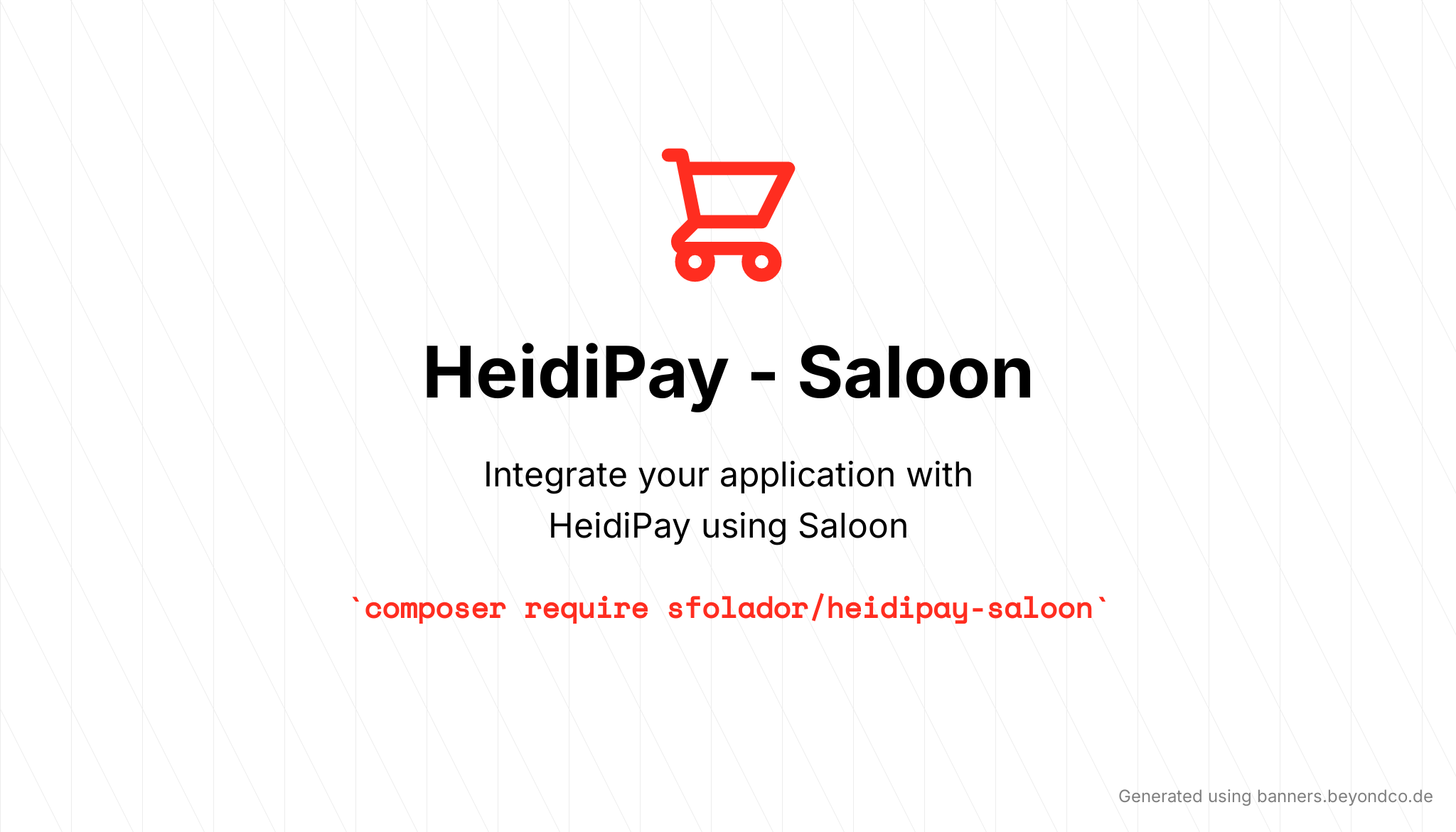This package provides a simple way to integrate your application with the HeidiPay API.
use Sfolador\HeidiPaySaloon\Services\HeidiPay;
use Sfolador\HeidiPaySaloon\Dto\AuthDto;
$apiUrl = 'https://api.heidipay.com';
$heidipay = new HeidiPay(apiUrl: $apiUrl);
$authDto = AuthDto::from(merchantKey: "merchant-key");
$heidipay->auth($authDto);
//The next requests will use the token returned by the `auth` API
$contractResponse = $heidipay->contract($contractInitDto);
// the response is a `Response` object, you can get the DTO using the `dtoOrFail` method
$contractResponseDto = $contractResponse->dtoOrFail();You can install the package via composer:
composer require sfolador/heidipay-saloonBefore calling any of the API endpoint it is necessary to authenticate with the HeidiPay API and obtain a token. Please read the official documentation at HeidiPay API for more information.
use Sfolador\HeidiPaySaloon\Services\HeidiPay;
use Sfolador\HeidiPaySaloon\Dto\AuthDto;
$apiUrl = 'https://sandbox-origination.heidipay.com';
//for production use $apiUrl = 'https://api.heidipay.com';
$heidipay = HeidiPay::init(apiUrl: $apiUrl);
$authDto = AuthDto::from(merchantKey: "merchant-key"); // the merchant key is provided by HeidiPay
$token = $heidipay->auth($authDto);Initialize a new contract for a user. Please read the official documentation at HeidiPay API for more information.
use Sfolador\HeidiPaySaloon\Services\HeidiPay;
use Sfolador\HeidiPaySaloon\Models\Amount;
use Sfolador\HeidiPaySaloon\Models\Customer;
use Sfolador\HeidiPaySaloon\Models\Webhooks;
use Sfolador\HeidiPaySaloon\Models\CreditInitProduct;
use Sfolador\HeidiPaySaloon\Dto\ContractInitDto;
$heidipay = HeidiPay::init(apiUrl: $apiUrl);
$amount = new Amount( currency: 'BRL',amount: 100, amountFormat: AmountFormat::DECIMAL);
$customer = new Customer(
email: 'customer@example.com', title: '', firstname: 'Test', lastname: 'Test', dateOfBirth: '', contactNumber: '', companyName: '', residence: ''
);
$webhooks = new Webhooks(
success: 'https://www.example.com/success',
failure: 'https://www.example.com/failure',
cancel: 'https://www.example.com/cancel',
status: 'https://www.example.com/status',
mappingScheme: 'default'
);
// remember to set a token for the webhooks and save it in your database to verify the webhooks later
$webhooks->setToken(str()->random(32));
$products = [new CreditInitProduct(
sku: null,
name: 'Test',
quantity: 1,
price: '100',
imageThumbnailUrl: null,
imageOriginalUrl: null,
description: null
)];
$contractInitDto = new ContractInitDto($amount, $customer, $webhooks, $products);
$contractResponse = $heidipay->contract($contractInitDto);
// the response is a `Response` object, you can get the DTO using the `dtoOrFail` method
$contractResponseDto = $contractResponse->dtoOrFail();
// $contractResponseDto will be a ContractDto object and have these properties:
$contractResponseDto->action;
$contractResponseDto->redirectUrl; // the url to redirect the user to complete the contract
$contractResponseDto->external_contract_uuid // the contract uuid
$contractResponseDto->application_uuid // the application uuid
The MIT License (MIT). Please see License File for more information.




